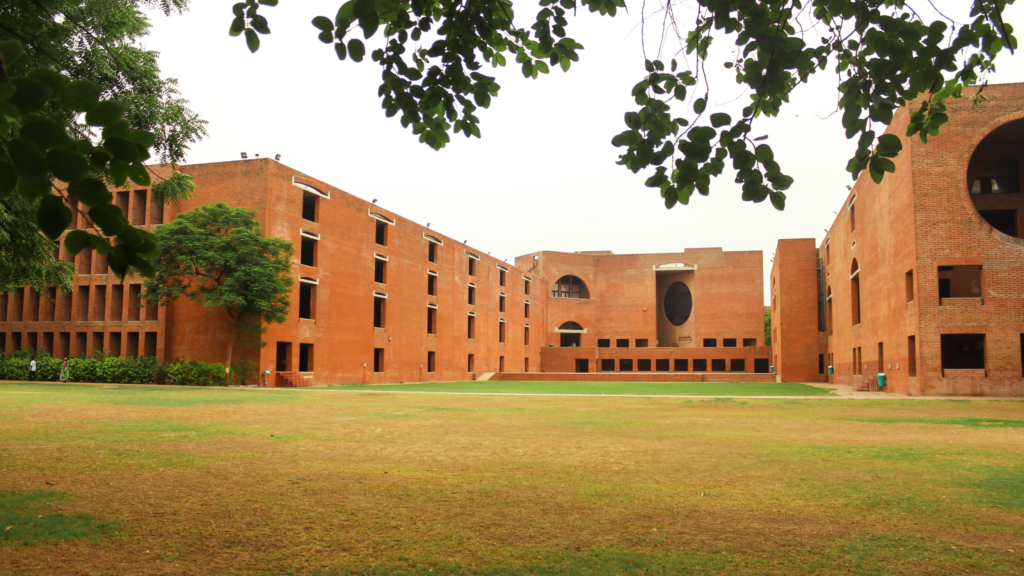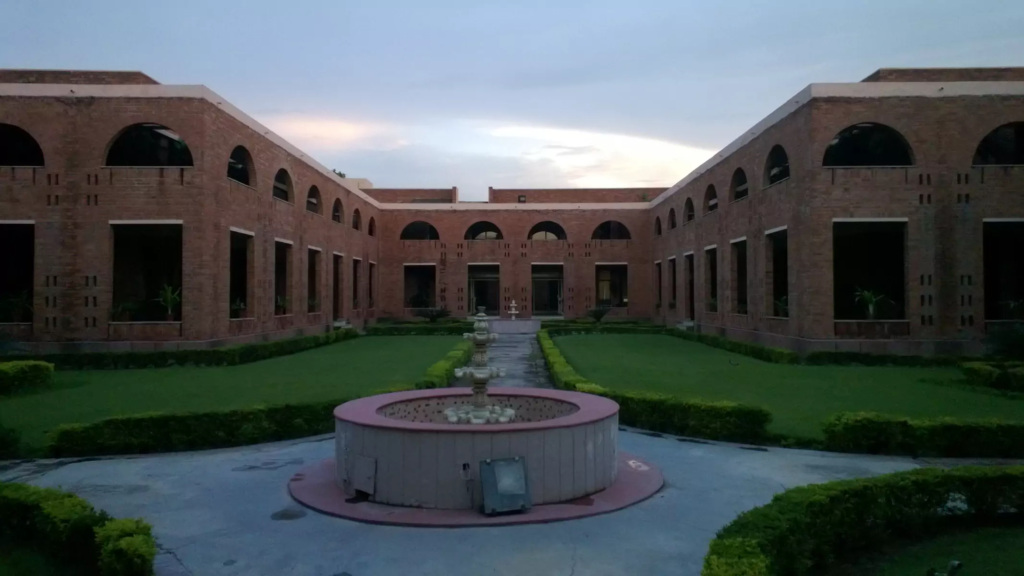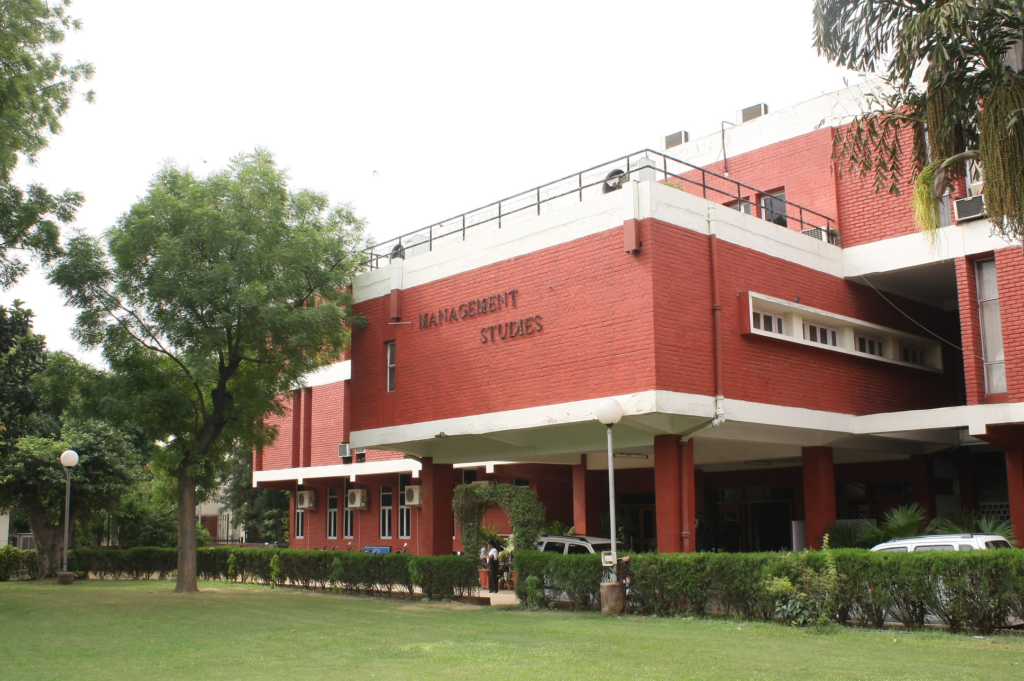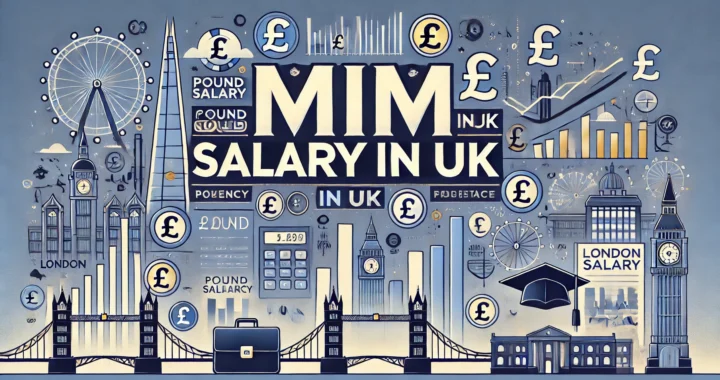For Indian students aspiring to elevate their careers with a world-class MBA, understanding the landscape of GMAT colleges in India is crucial. The Graduate Management Admission Test (GMAT) plays a pivotal role in admissions to top MBA programs both domestically and internationally. But why is the GMAT so significant for MBA aspirants in India and abroad? Not only does it assess your analytical and verbal skills, but it also opens doors to a plethora of global opportunities post-graduation. With a strong GMAT score, you can position yourself competitively in the eyes of elite business schools and, subsequently, the global job market.
What is GMAT exam?
The GMAT exam, or Graduate Management Admission Test, is a standardized assessment designed to evaluate the analytical, writing, quantitative, verbal, and reading skills of applicants seeking admission to graduate management programs. Administered by the Graduate Management Admission Council (GMAC), the GMAT is a trusted indicator of academic performance in MBA programs worldwide.
The exam is divided into four sections:
- Analytical Writing Assessment (AWA): Measures your ability to think critically and communicate ideas through writing.
- Integrated Reasoning (IR): Assesses how well you analyze data presented in multiple formats.
- Quantitative Reasoning: Tests your problem-solving skills using arithmetic, algebra, and geometry.
- Verbal Reasoning: Evaluates your reading comprehension, critical reasoning, and sentence correction abilities.
Understanding the structure of the GMAT is the first step toward effective preparation.
.
GMAT Syllabus and Exam Pattern:
| Section | Questions | Time Allotted | Score Range |
|---|---|---|---|
| Analytical Writing | 1 essay | 30 minutes | 0-6 |
| Integrated Reasoning | 12 | 30 minutes | 1-8 |
| Quantitative Reasoning | 31 | 62 minutes | 6-51 |
| Verbal Reasoning | 36 | 65 minutes | 6-51 |
GMAT Eligibility
Understanding GMAT eligibility is essential for anyone planning to take the exam. The Graduate Management Admission Test (GMAT) has specific criteria that candidates must meet to ensure fairness and accessibility for all test-takers.

- Age Limit: There is no maximum age limit to take the GMAT. However, candidates must be at least 18 years old. Those between 13 and 17 years can take the test with written consent from a parent or legal guardian.
- Educational Qualifications: The GMAC does not mandate any specific educational qualifications to sit for the GMAT. While there is no minimum degree requirement, candidates typically have an undergraduate degree since the GMAT is used for admission to graduate-level management programs.
- Identification Requirements: On the test day, candidates must present a valid, government-issued photo ID. In India, a valid passport is required, which must include your name, photograph, and signature.
- Test Attempts: You can take the GMAT up to five times in a rolling 12-month period and a maximum of eight times in a lifetime. There must be at least 16 days between two attempts.
Table: Summary of GMAT Eligibility Requirements
| Criteria | Requirement |
|---|---|
| Minimum Age | 18 years (13-17 with parental consent) |
| Maximum Age | No upper limit |
| Educational Qualification | No specific requirement (undergraduate degree recommended) |
| Identification | Valid passport with name, photo, and signature |
| Test Attempts | Up to 5 times in 12 months; 8 times lifetime |
| Retake Waiting Period | Minimum 16 days between attempts |
Clarifying Misconceptions About Eligibility
- Work Experience: While work experience strengthens an MBA application, it’s not a prerequisite for taking the GMAT.
- Academic Background: The GMAT is open to candidates from all academic disciplines, not just business or commerce.
- Nationality Restrictions: The GMAT is a global exam with no nationality-based restrictions.
Top 10 GMAT Colleges in India
1. Indian Institute of Management (IIM) Ahmedabad
IIM Ahmedabad, established in 1961, is consistently ranked as one of the top GMAT accepting colleges in India. Known for its rigorous academic curriculum and world-class faculty, IIM-A offers a two-year Post Graduate Programme in Management (PGP) that is equivalent to an MBA. The institute is renowned for its case study method of teaching and its strong focus on entrepreneurship. IIM-A’s GMAT score requirements are among the highest in India, reflecting its competitive admission process and prestigious status in the field of management education.

| Aspect | Details |
|---|---|
| Tuition Fees (2024) | ₹23 lakhs for the 2-year program |
| Avg. GMAT Score Required | 710-730 |
| Additional Expenses | ₹3-4 lakhs (approx.) for accommodation, books, etc. |
| Notable Alumni | Harsha Bhogle, Deep Kalra, Sanjeev Bikhchandani |
| Post-Grad Average Salary | ₹32.79 lakhs per annum (2023 batch) |
| Courses Offered | PGP (MBA), PGPX (Executive MBA), PhD |
| GMAT Code | 6LL-M9-96 |
| Acceptance Rate | 0.25% (2023) |
2. Indian Institute of Management (IIM) Bangalore
IIM Bangalore, founded in 1973, is another top-tier institution among GMAT accepting colleges in India. It’s known for its strong focus on information technology and quantitative techniques. The institute offers a two-year Post Graduate Programme in Management (PGP) that is highly sought after by MBA aspirants. IIM-B’s campus, often called the “Green Campus,” is known for its beautiful architecture and environmentally conscious design. The institute has a strong emphasis on research and innovation in management education.

| Aspect | Details |
|---|---|
| Tuition Fees (2024) | ₹24.5 lakhs for the 2-year program |
| Avg. GMAT Score Required | 700-720 |
| Additional Expenses | ₹3-4 lakhs (approx.) for accommodation, books, etc. |
| Notable Alumni | K. Radhakrishnan, Nandan Nilekani, Damodaran Srinivasan |
| Post-Grad Average Salary | ₹29.5 lakhs per annum (2023 batch) |
| Courses Offered | PGP (MBA), EPGP (Executive MBA), PhD |
| GMAT Code | 7BB-PL-59 |
| Acceptance Rate | 0.3% (2023) |
3. Indian Institute of Management (IIM) Calcutta
Established in 1961, IIM Calcutta was the first IIM to be established in India. It’s recognized as one of the premier GMAT accepting colleges in India, known for its finance and economics programs. IIM-C offers a two-year Post Graduate Programme in Management (PGP) that is highly competitive. The institute is renowned for its strong placement record and its focus on developing leaders with a global perspective. IIM-C’s campus, located in Joka, is known for its serene environment conducive to learning and personal growth.

| Aspect | Details |
|---|---|
| Tuition Fees (2024) | ₹23.5 lakhs for the 2-year program |
| Avg. GMAT Score Required | 690-710 |
| Additional Expenses | ₹3-4 lakhs (approx.) for accommodation, books, etc. |
| Notable Alumni | Ajit Balakrishnan, Indra Nooyi, Sunil Mittal |
| Post-Grad Average Salary | ₹31.3 lakhs per annum (2023 batch) |
| Courses Offered | PGP (MBA), PGPEX (Executive MBA), PhD |
| GMAT Code | 6C4-YC-72 |
| Acceptance Rate | 0.25% (2023) |
4. Indian School of Business (ISB) Hyderabad
ISB Hyderabad, established in 2001, is a relatively young but highly prestigious institution among GMAT accepting colleges in India. It offers a one-year Post Graduate Programme in Management (PGP) that is equivalent to an MBA. ISB is known for its global outlook, with strong partnerships with international business schools. The institute boasts a world-class faculty, many of whom have taught at top global business schools. ISB’s admission process is highly selective, with a strong emphasis on work experience in addition to GMAT scores.

| Aspect | Details |
|---|---|
| Tuition Fees (2024) | ₹40 lakhs for the 1-year program |
| Avg. GMAT Score Required | 700-710 |
| Additional Expenses | ₹5-6 lakhs (approx.) for accommodation, books, etc. |
| Notable Alumni | Rishad Premji, Madhur Deora, Kavita Vijay |
| Post-Grad Average Salary | ₹34.21 lakhs per annum (2023 batch) |
| Courses Offered | PGP (MBA), PGPMAX (Executive MBA), FPM (Doctoral) |
| GMAT Code | 7C9-PL-14 |
| Acceptance Rate | 20% (2023) |
5. XLRI Jamshedpur
XLRI Jamshedpur, founded in 1949, is one of the oldest business schools in India and a respected name among GMAT accepting colleges in India. Known for its strong focus on human resources and industrial relations, XLRI offers a two-year Post Graduate Diploma in Management (PGDM) that is equivalent to an MBA. The institute is renowned for its ethical approach to management education and its emphasis on developing socially responsible business leaders. XLRI’s admission process is highly competitive, with the GMAT being one of the accepted entrance exams.

| Aspect | Details |
|---|---|
| Tuition Fees (2024) | ₹23 lakhs for the 2-year program |
| Avg. GMAT Score Required | 680-700 |
| Additional Expenses | ₹3-4 lakhs (approx.) for accommodation, books, etc. |
| Notable Alumni | Leena Nair, Rama Bijapurkar, Vineet Nayar |
| Post-Grad Average Salary | ₹30.3 lakhs per annum (2023 batch) |
| Courses Offered | PGDM (MBA), PGDM-HRM, PGDM-BM, FPM (Doctoral) |
| GMAT Code | 6C9-G1-95 |
| Acceptance Rate | 2% (2023) |
6. SP Jain Institute of Management and Research (SPJIMR) Mumbai
SPJIMR, established in 1981, is a leading management institute and one of the prominent GMAT accepting colleges in India. It offers a two-year Post Graduate Diploma in Management (PGDM) that is equivalent to an MBA. SPJIMR is known for its unique pedagogical approaches, including its emphasis on social sensitivity and hands-on learning experiences. The institute has a strong focus on developing well-rounded business leaders with a global perspective. SPJIMR accepts GMAT scores for its PGDM program, making it a popular choice among GMAT test-takers.

| Aspect | Details |
|---|---|
| Tuition Fees (2024) | ₹21.5 lakhs for the 2-year program |
| Avg. GMAT Score Required | 650-680 |
| Additional Expenses | ₹4-5 lakhs (approx.) for accommodation, books, etc. |
| Notable Alumni | Harsh Mariwala, Niranjan Hiranandani, Madan Padaki |
| Post-Grad Average Salary | ₹32.05 lakhs per annum (2023 batch) |
| Courses Offered | PGDM, PGPM, GMP, FMB |
| GMAT Code | 6VJ-3C-38 |
| Acceptance Rate | 5% (2023) |
7. Management Development Institute (MDI) Gurgaon
MDI Gurgaon, established in 1973, is a premier business school and one of the respected GMAT accepting colleges in India. It offers a two-year Post Graduate Programme in Management (PGP) that is equivalent to an MBA. MDI is known for its strong industry connections and its focus on developing future-ready managers. The institute has a diverse student body and offers numerous opportunities for international exposure through exchange programs. MDI’s admission process considers GMAT scores along with other criteria, making it a popular choice for GMAT test-takers.

| Aspect | Details |
|---|---|
| Tuition Fees (2024) | ₹20.5 lakhs for the 2-year program |
| Avg. GMAT Score Required | 650-670 |
| Additional Expenses | ₹3-4 lakhs (approx.) for accommodation, books, etc. |
| Notable Alumni | Ajay Kapur, Rajesh Jejurikar, Sunil Duggal |
| Post-Grad Average Salary | ₹24.7 lakhs per annum (2023 batch) |
| Courses Offered | PGP (MBA), PGP-HRM, PGP-IM, FPM (Doctoral) |
| GMAT Code | 6WG-KL-21 |
| Acceptance Rate | 3% (2023) |
8. Faculty of Management Studies (FMS) Delhi
FMS Delhi, part of the University of Delhi, was established in 1954 and is one of the oldest business schools in India. It’s a highly sought-after institution among GMAT accepting colleges in India. FMS offers a two-year full-time MBA program known for its rigorous curriculum and excellent faculty. The institute is renowned for offering high-quality management education at a relatively lower cost compared to other top B-schools in India. FMS accepts GMAT scores for its MBA program, making it an attractive option for GMAT test-takers seeking value for money.

| Aspect | Details |
|---|---|
| Tuition Fees (2024) | ₹1.92 lakhs for the 2-year program |
| Avg. GMAT Score Required | 650-680 |
| Additional Expenses | ₹3-4 lakhs (approx.) for accommodation, books, etc. |
| Notable Alumni | Sanjiv Mehta, Raghav Bahl, Amitabh Chaudhry |
| Post-Grad Average Salary | ₹32.4 lakhs per annum (2023 batch) |
| Courses Offered | MBA (Full-Time), MBA (Executive), PhD |
| GMAT Code | 7XP-TL-56 |
| Acceptance Rate | 0.5% (2023) |
9. Indian Institute of Foreign Trade (IIFT) Delhi
IIFT Delhi, established in 1963, is a specialized institution focusing on international business and one of the prominent GMAT accepting colleges in India. It offers a two-year MBA in International Business program that is highly regarded in the industry. IIFT is known for its expertise in areas like international trade, finance, and marketing. The institute has strong connections with government and industry, providing students with unique insights into global business practices. IIFT accepts GMAT scores for its MBA program, making it a popular choice for aspirants interested in international business.

| Aspect | Details |
|---|---|
| Tuition Fees (2024) | ₹19.5 lakhs for the 2-year program |
| Avg. GMAT Score Required | 650-670 |
| Additional Expenses | ₹3-4 lakhs (approx.) for accommodation, books, etc. |
| Notable Alumni | Rajendra Pawar, Ashok Chawla, Syed Akbaruddin |
| Post-Grad Average Salary | ₹23.81 lakhs per annum (2023 batch) |
| Courses Offered | MBA (International Business), MA (Economics), PhD |
| GMAT Code | 6P9-HJ-22 |
| Acceptance Rate | 1.5% (2023) |
10. Narsee Monjee Institute of Management Studies (NMIMS) Mumbai
NMIMS Mumbai, established in 1981, is a deemed-to-be university and one of the respected GMAT accepting colleges in India. It offers a two-year MBA program through its flagship School of Business Management. NMIMS is known for its innovative curriculum, strong industry connections, and emphasis on holistic development. The institute provides numerous specializations and has a strong focus on entrepreneurship. NMIMS accepts GMAT scores for its MBA program, making it a popular choice among GMAT test-takers looking for a comprehensive business education in Mumbai.

| Aspect | Details |
|---|---|
| Tuition Fees (2024) | ₹23.5 lakhs for the 2-year program |
| Avg. GMAT Score Required | 640-660 |
| Additional Expenses | ₹4-5 lakhs (approx.) for accommodation, books, etc. |
| Notable Alumni | Rahul Bajaj, Ashish Chauhan, Sanjiv Bajaj |
| Post-Grad Average Salary | ₹21.94 lakhs per annum (2023 batch) |
| Courses Offered | MBA, PGDM, PhD |
| GMAT Code | 5TF-DW-26 |
| Acceptance Rate | 4% (2023) |

Top GMAT MBA Programs Abroad
Exploring the top GMAT MBA programs abroad can significantly broaden your horizons, offering international exposure and a diverse learning environment. Prestigious institutions worldwide accept GMAT scores, providing Indian students with opportunities to gain global business insights and networks.
- Harvard Business School (HBS)Harvard’s MBA program is renowned for its case study pedagogy and leadership focus. With an acceptance rate of around 11%, HBS seeks candidates with strong academic records, impactful professional experience, and GMAT scores typically averaging 730.
- INSEADWith campuses in France, Singapore, and Abu Dhabi, INSEAD offers a one-year MBA program known for its multicultural diversity. The average GMAT score for INSEAD admits is about 709, and the program emphasizes international experience and language proficiency.
- London Business School (LBS)Located in the heart of London, LBS provides a flexible MBA program lasting 15-21 months. The school looks for candidates with a global mindset, and the average GMAT score hovers around 701.
Advantages of Pursuing an MBA Abroad:
- Global Network: Access to an international alumni network can open doors worldwide.
- Cultural Exposure: Studying abroad enhances cross-cultural communication skills.
- Career Opportunities: International MBA graduates often have better prospects in global corporations.
- Personal Growth: Adapting to a new environment fosters resilience and adaptability.
Comprehensive List of GMAT Accepting Colleges
An extensive array of GMAT accepting colleges both in India and abroad provides candidates with numerous options to pursue quality management education. Below is a comparative table highlighting key institutions, their locations, average GMAT score requirements, and program highlights.
Table: Comparative List of GMAT Accepting Colleges
| College/University | Location | Average GMAT Score | Program Highlights |
|---|---|---|---|
| Indian School of Business (ISB) | Hyderabad, Mohali | 700-710 | One-year PGP, strong industry links |
| IIM Ahmedabad (Executive MBA) | Ahmedabad | 700+ | One-year MBA for executives, global collaborations |
| IIM Bangalore (Executive MBA) | Bangalore | 680+ | Focus on leadership, international immersion programs |
| Harvard Business School | Boston, USA | 730 | Case method teaching, leadership focus |
| INSEAD | France, Singapore | 709 | One-year MBA, multicultural student body |
| London Business School | London, UK | 701 | Flexible program length, strong finance sector connections |
| Kellogg School of Management | Illinois, USA | 727 | Team-based learning, marketing excellence |
| University of Toronto (Rotman) | Toronto, Canada | 670 | Integrative thinking curriculum, strong in finance and consulting |
| National University of Singapore | Singapore | 670 | Asia-focused curriculum, entrepreneurial opportunities |
| SP Jain Institute of Management | Mumbai, India | 680+ | Global management programs, industry-oriented curriculum |
Emerging Institutions Offering Quality MBA Programs:
- Great Lakes Institute of Management (Chennai, Gurgaon): Known for its one-year PGPM and two-year PGDM programs, accepting GMAT scores with an average requirement of around 600+.
- IMI Delhi: Offers a full-time MBA program with a focus on leadership and global perspectives, considering GMAT scores above 600.
Does IIM Accept GMAT?
A common query among MBA aspirants is, “Does IIM accept GMAT scores?” The answer is yes, but primarily for specific programs and applicant categories.

IIM Programs Accepting GMAT Scores:
- Executive MBA Programs (One-Year Full-Time):
- IIM Ahmedabad (PGPX): Designed for executives with significant work experience.
- IIM Bangalore (EPGP): Focuses on leadership and international exposure.
- IIM Calcutta (PGPEx): Aimed at preparing global business leaders.
- Fellow Programs in Management (FPM):
- Some IIMs accept GMAT scores for their doctoral-level programs.
- Two-Year MBA Programs:
- For International Applicants Only: Non-resident Indians (NRIs) and foreign nationals can apply using GMAT scores.
GMAT vs. CAT for IIM Admissions:
- Domestic Applicants: For the flagship two-year MBA programs, domestic candidates must take the CAT.
- International Applicants: GMAT scores are accepted from international candidates for the two-year programs.
- Executive Programs: GMAT is the preferred test for one-year executive MBA programs for both domestic and international applicants.
What is ISB GMAT Cutoff?
Understanding the ISB GMAT cutoff is essential for aspirants aiming to secure admission to the prestigious Indian School of Business (ISB). While ISB does not officially declare a strict cutoff score, the average GMAT score for ISB admitted candidates typically ranges between 700 and 710.
Why the GMAT Score Matters for ISB Admissions
- Competitive Edge: A higher GMAT score enhances your application by showcasing strong analytical and quantitative skills, which are crucial for ISB’s rigorous MBA program.
- Academic Readiness: The score serves as an indicator of your ability to handle the curriculum and contribute meaningfully to class discussions.
- Holistic Evaluation: While the GMAT score is significant, ISB adopts a holistic approach, considering work experience, leadership potential, and academic background.

How to Meet or Exceed the ISB GMAT Cutoff
- Strategic Preparation:
- Structured Study Plan: Allocate dedicated time over several months, focusing on all four sections of the GMAT.
- Quality Resources: Utilize official GMAT prep materials and consider professional coaching if necessary.
- Practice and Review:
- Mock Tests: Regularly take full-length practice exams to build stamina and identify areas for improvement.
- Analyze Performance: Review incorrect answers to understand mistakes and avoid repeating them.
- Enhance Other Application Components:
- Professional Experience: Highlight significant achievements and leadership roles in your career.
- Essays and Recommendations: Craft compelling essays and secure strong letters of recommendation that align with ISB’s values.
Conclusion
Choosing among the GMAT colleges in India is a crucial decision for anyone aiming for an MBA. The GMAT can open doors to prestigious institutions like ISB, various IIMs, and even top global programs. By understanding the eligibility criteria, score expectations, and admission strategies, you can set yourself up for success. Earning an MBA from these respected colleges not only equips you with advanced management skills but also boosts your career prospects worldwide. With careful preparation and the right approach, you can take this important step toward achieving your professional goals.
FAQs on GMAT Colleges in India
1. Which college accepts GMAT in India?
Several top colleges in India accept GMAT scores, including the Indian School of Business (ISB), IIMs (for executive programs), SP Jain Institute of Management and Research, Great Lakes Institute of Management, and IMI Delhi, among others.
2. What is the total fees of GMAT in India?
The GMAT exam fee in India is $275 USD, which is approximately INR 20,000 (exchange rates may vary). Additional costs may include rescheduling fees and preparation materials.
3. Is GMAT difficult for Indian students?
The GMAT can be challenging due to its adaptive nature and emphasis on reasoning skills. However, with consistent preparation and practice, many Indian students achieve high scores. Familiarity with quantitative subjects often gives an edge, but verbal and analytical writing sections may require additional focus.
4. Is GMAT harder than CAT?
The perceived difficulty between the GMAT and CAT varies by individual. GMAT is considered challenging due to its adaptive nature and emphasis on critical reasoning and grammar in the verbal section. CAT is known for its rigorous data interpretation and logical reasoning sections with tight time constraints. Those strong in English may find GMAT more approachable, while candidates adept at quick logical reasoning might prefer CAT. Both exams require focused preparation tailored to their unique formats.




